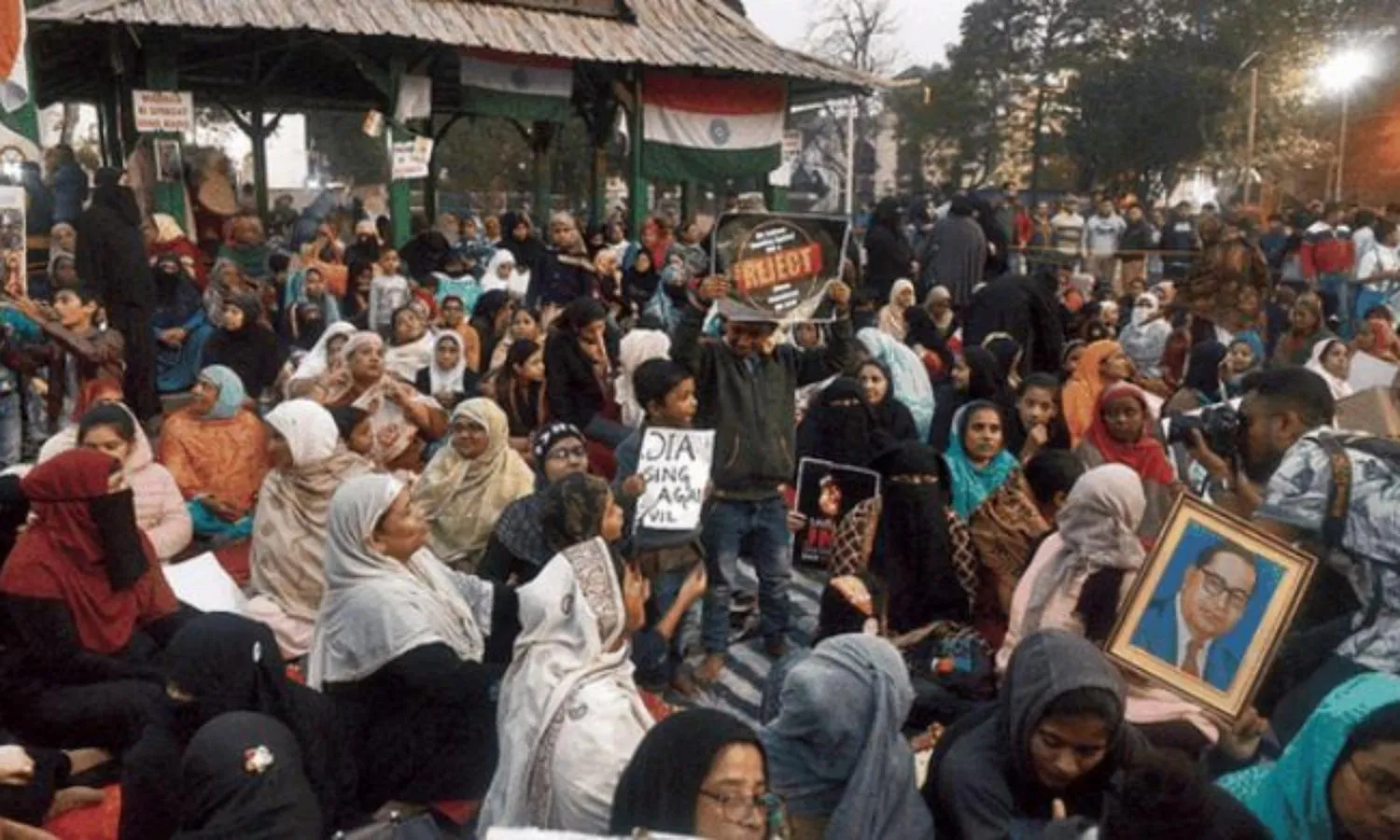Kolkata's Shaheen Bagh: 1000s of Women Sit on Indefinite Strike
Women in Dharna at Park Circus Maidan in Kolkata
This is perhaps for the first time in the history of Kolkata when thousands of women, from all walks of life, have sat down on an indefinite strike protesting against and demanding the withdrawal of National Register of Citizens (NRC), Citizenship Amendment Act (CAA) and the National Population Register (NPR).
They have added the protest against the Delhi Police for its attack against women at the Jamia Millia and the Jawaharlal University in Delhi. In the chilliest of winter the city is wheezing through at 11 degrees C these women sit there through day and night, sans any political flags to show, and minus any political slogans or affiliations.
Their cries are all for “azaadi” as the common refrain and this is the fifth day with people including elderly women who have never participated in dharnas joining in constantly.
The word dharna originates from the Sanskrit word dharnam. Dharasana Satyagraha was a protest against the British salt tax in colonial India in May, 1930. Following the conclusion of the Salt March to Dandi, Mahatma Gandhi chose a non-violent raid of the Dharasana Salt Works in Gujarat as the next protest against British rule.
A group of women gathered at the Park Circus Maidan on January 7. They announced their intention to stage a sit-down and would continue to sit at the Maidan and would not get up till the government repealed the CAA and struck off the compilation of the NPR as well as the compilation of the NRC. “Inspired by the women of Shaheen Bagh, we had been contemplating starting a sit-in. The attack on women at the prestigious JNU shook me and I decided that the sit-in had to be organised in Kolkata now. Thus, we walked in and have been sitting here since long” says Shahnaz Ali on the social media page.
They are (a) not going to disrupt public life at any point, (b) not disrupting traffic with their sit-down in an a maidan. So, in their opinion, there is no reason for the police to object to this gathering.
“We have the right to express dissent” said Shafqat Rahim, an LLM student studying Constitutional Law and Human Rights. The youngsters are singing songs of protest in the dark night, their faces alive with smiles and cheer as they enjoy the participation and the agency raising protest slogans.
Some of the popular songs are the ones that decried warfare sung in Satyajit Ray’s Goopy Gyne Bagha Byne. The first lines of the song, translated in English, go like this:
Oh the soldiers of the King of Halla,
What will you do fighting a war?
What will you do wielding weapons of war without any intent
Just to lose your life without reason?
Food and drinks are being provided by a few neighbourhood clubs such as the Rashidi foundation and the crowds are raising naras of Halla Bol, Azaadi and Inqilab Zindabad. Some citizens are appealing to people from their social network pages to the citizens of the city to come forward and help these activists with a cause with food and blankets, thermocole and floor carpets they can sit on. In this chilly winter, the dew wets the floor mats and blankets get wet rendering them useless.
So, some club leaders have started a signature campaign to appeal to the citizens to sign a petition requesting the powers-that-be to give tents to the men, women and children who are sitting there. The first such appeal on the social media came from Professor Shamim Ahmed who says, “this appeal comes from the very people who are peacefully sleeping cosily in their blankets in these winter nights. One must remember that those who have come out on the streets are fighting for everyone of us, to protect the safety and security of the Indian Constitution.
However, corporator Debashish Kumar says, “the sit-down in a public park without informing the authorities is illegal. These people did not ask for permission. In that case, how can we grant them permission to construct tents?”
The story of protest goes back to December 29, 2019 when an Interfaith March was organized at 5.30 pm where the protestors marched together from Kachi Saadak More to Banda Bartalla More and back along the same route in Metiabruz in Kolkata which is a Muslim-filled neighbourhood against NRC and CAA. Before this, another protest rally was organised by Majlis e Ulema e Islam against the CAA and NRC at Metiaburuz. The cause was spelt out as follows – “India will never accept this unconstitutional Act against citizen, this act is the open threat to the constitution and diversity of India...We will never gonna let this happen”
Dharna is defined as “in India, a method of seeking justice by sitting at the door of one's debtor or wrong-doer and fasting until justice is obtained.” These protestors are not fasting but their sitting down for five days and five nights at a stretch, their determination and power and mental will are undaunted and are setting an example for the younger generations to follow.
(Cover Photo: The Telegraph)





